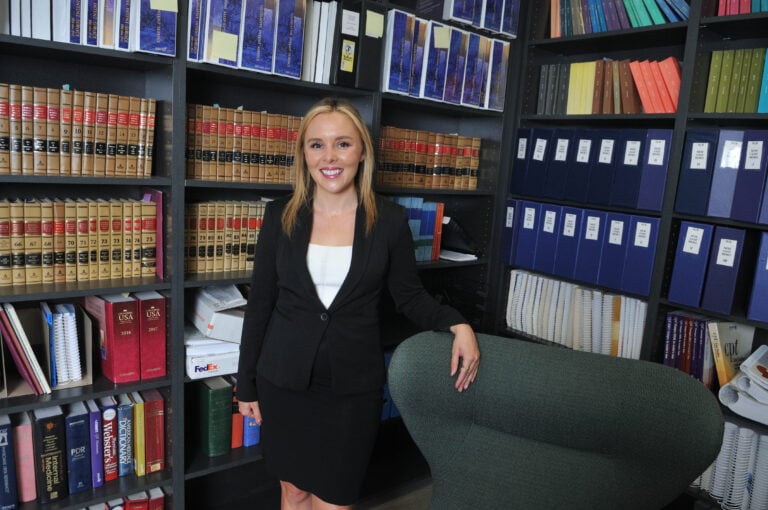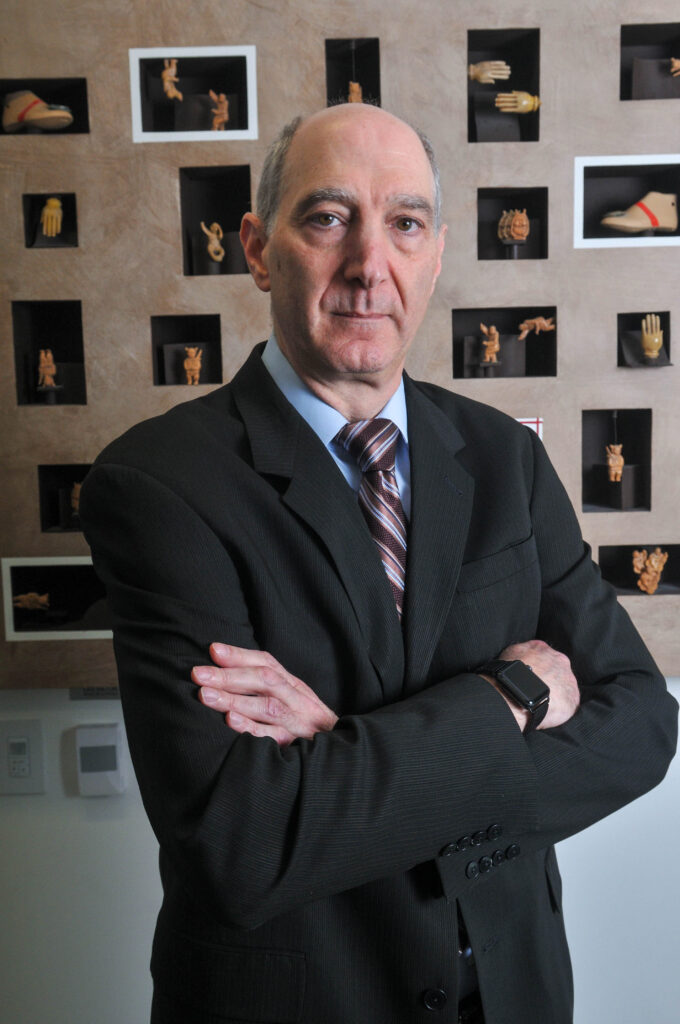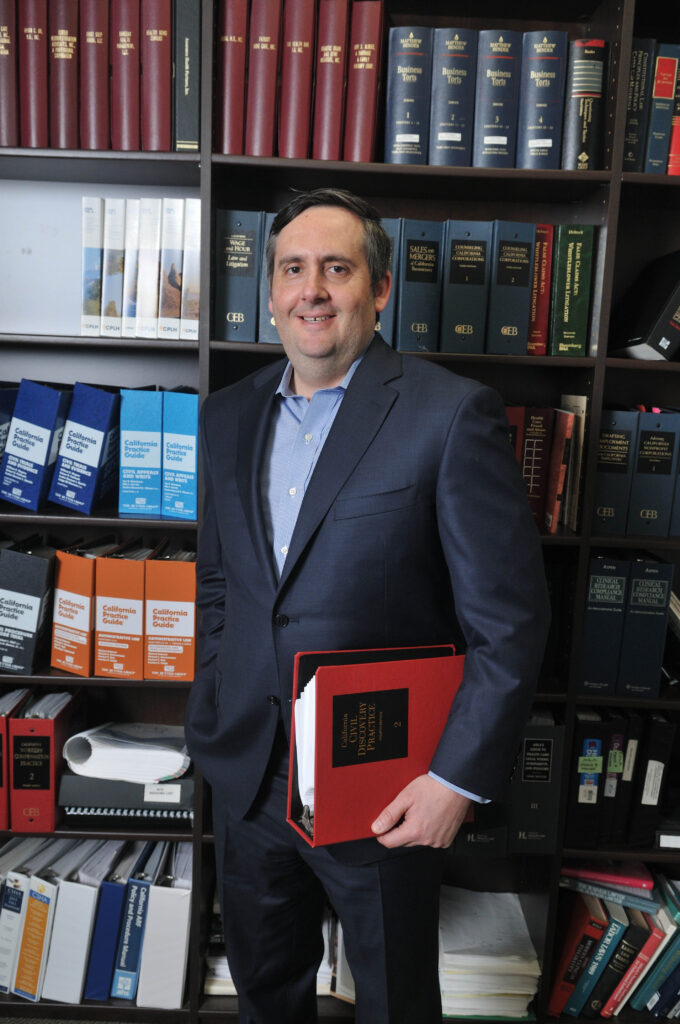
Health care may prove to be an especially lucrative specialty for lawyers for years to come — particularly if they’re adept litigators.
By many accounts, an area that used to be rife with settlements has reversed, with a much larger number of cases reaching the trial stage of a lawsuit than before.
“In the old days, these kinds of cases got settled,” observed Glenn Solomon, a partner in King & Spalding’s downtown office. “Now, the defendants are saying, ‘Let’s take our chances against the juries.’”
This has motivated Los Angeles law firms to bolster their existing health care practices and shore up the new talent as it hits the market.
“We’ve certainly been hiring attorneys into the litigation space. We need people constantly with the litigation skills to work on these things,” said Bridget Gordon, a partner at Hooper Lundy & Bookman in Century City. “That’s absolutely been fueling our interest in hiring new associates and making sure we have people with those skillsets to defend against the government.”
Big suits
For Peter Strotz, managing partner of King & Spalding’s downtown office, the turning point started in 2019, when he represented Encino Hospital Medical Center in a suit by the state Department of Insurance alleging insurance fraud.

That lawsuit claimed the hospital — which hosted a co-defendant that was operating a detox center on the premises — misrepresented to insurance providers that it was licensed to provide detox services to patients. Strotz and his clients looked at the state’s settlement terms — which he did not disclose — and opted instead to go to trial. Encino Hospital won, and its defense verdict was upheld by a state appellate panel. It is now before the California Supreme Court.
“Suffice to say, it was a big number,” Strotz said of the proposed settlement. “We said there was no fraud here and we’re going to roll the dice.”
Since then, Strotz said his office has only grown its health care and related practices with new associates — since 2020, the office has added six attorneys and one paralegal just for health care litigation, and he said they’re also aggressively looking for lateral partner hires.
From 2020-2022, there were 354 lateral health care partner, associate and other attorney hires in the Los Angeles metro area, according to Decipher Investigative Intelligence. Among a field that includes a plethora of different legal specialties, nearly 52% of those laterals were litigators.
“Overall, litigators represent a pretty significant portion of the health care lateral pie,” said Greg Hamman, chief data officer for Decipher, a firm that performs due diligence research for law firms seeking lateral hires.
In his 35 years of practice, Strotz said he’d tried “all manner of cases” for the first 30, including toxic torts, excessive force by law enforcement and business disputes.
“Then came this health care fraud trial in 2019,” he said. “Since that time, my practice has shifted away. My practice now, since that trial in 2019, is about 75% health care litigation.”
Strotz typically handles defenses in this sort of litigation, but the plaintiff side — typically, when a health care provider is alleging under- or nonpayment by a payor — is also seeing more trials nowadays.
Though attorneys who handle fraud defenses have come in demand, Solomon noted his sort of work has been a staple of the firm’s practice for some time.
“I have not seen a slowdown in 20 years,” he said. “When the rest of the world was slowing down, this one did not. We were hiring back then and we’re hiring now.”
Still, the schedule of cases is proving to be a tall order for the foreseeable future.
Last year, Strotz said there were 351 fraud settlements and judgments nationwide — the highest he’s ever seen in a calendar year. So far this year, Solomon has already been involved in two arbitrations and two trials, and the lead attorney for those trials, partner Daron Tooch, has a trial scheduled every month for the rest of the year.
Lucrative field
While there are numerous factors at play here, one significant influence is the sheer amount of money involved.
For example, King & Spalding said that 10 years ago a fraud defendant might be able to settle an “error or mistake” for $20 million. That same case would likely get a settlement offer of paying $70-$100 million and copping to the alleged fraud. On the other side, an alleged $10 million shortfall from an insurance payor from a decade ago might be a $30-40 million gap now.
“We certainly have seen an aggressive turn by the government,” Gordon, from Hooper Lundy, said. “Especially recently, there’s a lot of urgency to look at providers critically with regards to all of the money doled out during the Covid pandemic.”

Ben Fenton, a partner at Sawtelle-based health care boutique Fenton Law Group, agreed that federal and state agencies have upped the ante in Medicare and Medicaid fraud investigations, and as a result, more providers are getting snagged in the dragnet under what he says are flimsier cases.
“You definitely have plenty of cases where people feel strongly about their legal position and don’t want to settle. It’s hard to pinpoint the reasons, but a lot of times I do think it is government overreach and government assuming that any type of mistake by a health care provider is intentional and was done to defraud the government,” Fenton said.
Private insurers, too, have been filing litigation to challenge health care providers at a higher clip, Fenton said. There often is a lot of overlap between prosecutors, who likely rely on legislation like the False Claims Act, and insurance providers, who initiate what are called qui tam suits, in which private attorneys litigate a civil case based on an alleged violation of a law.
Going to trial
Prior to this trend, to risk a trial in those times meant throwing away a relatively “reasonable” settlement offer and chancing a much harsher judgment.
“It used to be because these penalties and damages are so draconian that many companies and individuals subject to a false claims action thought that the best course was to try to work out a settlement,” explained Patric Hooper, a founding partner of Hooper Lundy. “We were part of that and the settlement process was very typical. It was quite uncommon to take those cases to trial because the risk of getting hit with a judgment that could just bankrupt the companies or individual was thought to be too high.”
Now, getting to the trial stage might be the best way to force better terms for a client, he continued. Hooper and Gordon said they recently had a case in which a provider was accused of receiving kickbacks for using another company’s spinal implants. They and their client felt the settlement was not materially different from a potential judgment, so they opted to get ready for the trial. They won that game of chicken.
“All of a sudden, the government’s sky-high proposals suddenly became reasonable, so
the client decided it was worth it to settle,” Hooper said. “Settlements still happen, but we like the settlements to be more reasonable than sometimes the government believes constitutes reasonable.”
